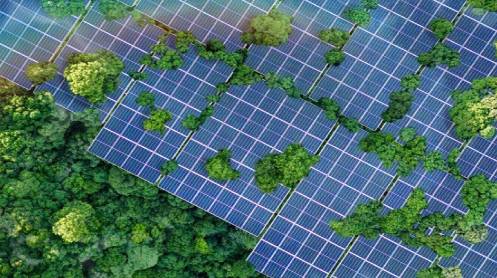Intergovernmental Panel on Climate Change (IPCC), UN body, has revealed that Pakistan would face greater consequences of climate change in coming decades in rural and urban areas.
The findings were carried by Resilient Future International (Pvt) Ltd (RFI), an Islamabad-based research and training outfit, in its Sixth IPCC Report on ‘Impacts, adaptation and vulnerability.’
The report shares the most advanced compendium of current and future climatic impacts in the world. Nearly 1,000 authors reviewed 34 thousand scientific reports in 6-7 years to prepare this report approved by 195 governments worldwide.
It shows that up to 3.6 billion people live in highly vulnerable countries of South Asia, small island developing states, the Arctic, Central and South America and sub-Saharan Africa. Climatic vulnerability is exacerbated by inequity linked to gender, ethnicity, low income and other forms of marginalisation.
Pakistan is already among top ten climate impacted countries. The IPCC report shows that in future, rural and urban areas of Pakistan would face greater impacts of climate change.
The report warns about future locust attacks. Conducive temperature and increased rains in deserts would create favourable conditions for breeding and outbreak of locust. Recent locust attacks in Pakistan, South Asia and Africa had destroyed crops and farmers’ income. Pakistan lost 2 per cent of agricultural production in the fiscal year 2019-20.
Agriculture in Pakistan faces greater disease attacks and crop losses due to floods, droughts and heatwaves. Warmer climate is leading to quicker grain formation phase in drylands areas of southern Punjab – an irreversible impact of climate change.
The report underscores that agrochemicals already degraded several parts in Pakistan, Nepal, India and China. The report also cites successful and unsuccessful climate adaptation practices. In Pakistan changes in crop sowing and harvesting time and rural-urban migration are among the coping practices. It categorises plantation of Eucalyptus trees in Pakistan as maladaptation due to their high water uptake. Maladaptation means initiative that causes more harm than benefits for environment.
Pakistan would face much more water issues in future. Pakistan, Bangladesh, China and India together account for 50 percent of global ground water withdrawal. In coming decades. water demand for irrigation, industry and household in Asia will increase by 30-40 per cent.
In urban areas people’s income, health, lives, properties, energy and transportation systems are adversely affected by heatwaves, floods, drought, storms and sea level rise . Hyderabad is going to be the hottest city in Pakistan, followed by Jacobabad, Bahawalnagar, Bahawalpur. Karachi may also face sever heat waves.
The report also mentions increasing malnutrition, child stunting and health impacts such as dengue, malaria, intestine infections and waterborne diseases due to climatic changes.
Aftab Alam Khan, CEO of RFI, noted that “the new IPCC report reveals that risks of the previous reports are already turning into realities. Our economy faces serious climate consequences. All departments in Federal and provincial governments need to take lead. It is crucial to uplift climate work by integrating agriculture extension, universities, health departments, rural, urban authorities and private sector. We should develop research based medium and long term climate adaptation plans. Inclusive process with urban authorities, universities, private sector, women and men farmers and civil society organisations would ensure relevant and pragmatic plan.”
He said it is high time to train all sectors on challenges and opportunities of climate change. Health, agriculture, industries, media and IT sectors can contribute towards climate resilient and water smart economy, he observed adding that universities can lead in research and technologies while private sector can produce climate smart products.





